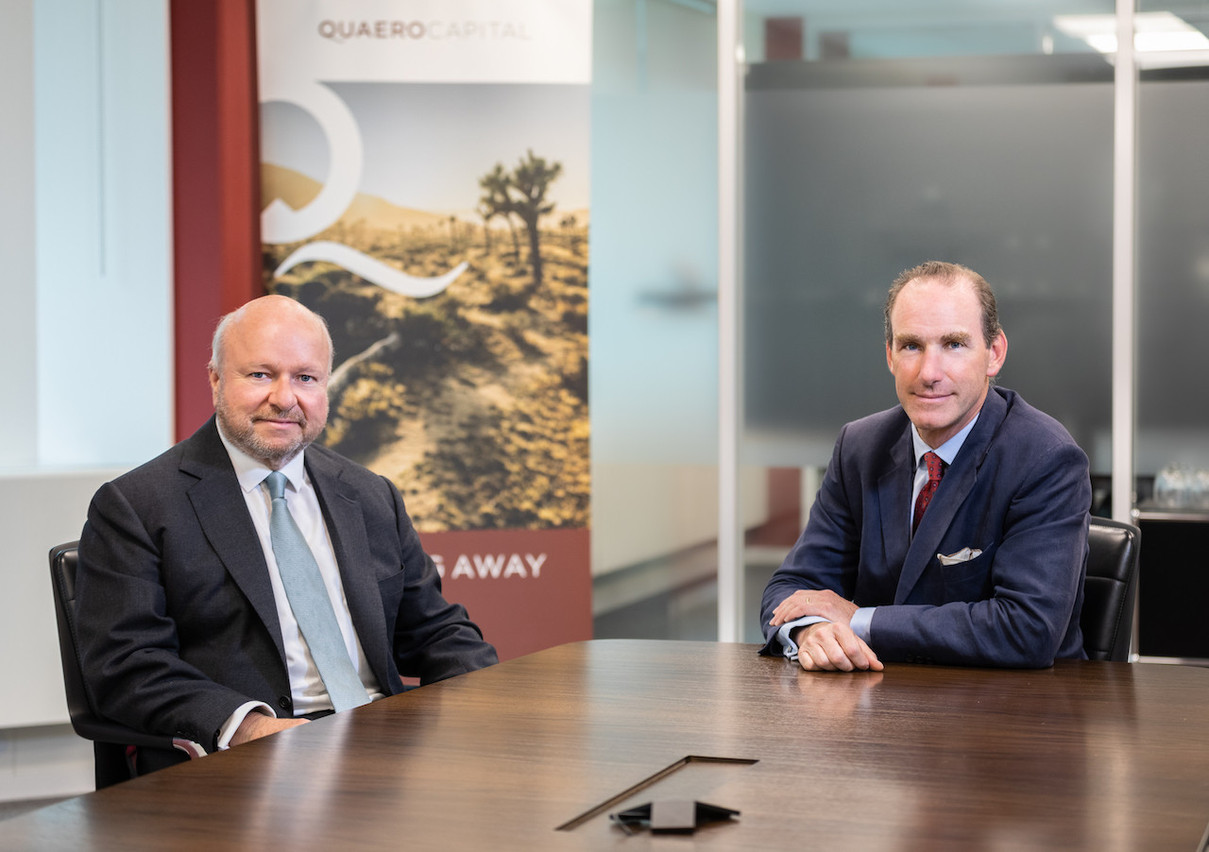The current macroeconomic and geopolitical situation is resetting the counter on company valuations, with the US still holding out on this point. This “return to fundamentals,” as Philip Best and Marc Saint John Webb at Quaero Capital put it, can be compared to a “force of gravity” that brings down to earth stocks that had been “exorbitantly” overvalued, without the creation of value having anything to do with it. This has been true for almost all equity markets, led by tech. And this will benefit the small cap market, according to Best and Saint John Webb.
“We should not confuse small caps with the local butcher or baker as is very often the case in the general public. We are talking about companies that may have hundreds or even thousands of employees and have a capitalisation level expressed in tens or hundreds of millions of euros,” said Best. They can be companies that serve their domestic market while at the same time being active in international markets. “They are often leaders in their niches.”
Another mistake to avoid is associating small caps with startups. “The former have a real business model and a valuation in line with their earning power. This is not necessarily the case for the latter.”
Market downturn
The small caps market enjoyed a boom period from 2012 to early 2018 in Europe. For various reasons--including the enthusiasm of managers and private bankers, as well as the tax incentives that existed in England, Italy and France--these stocks generated a flow of money that mechanically drove up prices.
In 2018, when the tensions on the international trade front began, the situation turned around. “This has caused complications for European companies,” said Saint John Webb. “At the same time, they didn’t have to work to create value. The markets were moving steadily upwards, which benefited technology stocks and large caps. Gradually, there were outflows from SMC funds to large cap funds. So much so that we estimate that almost all the money that came in between 2012 and 2018 is now out.”
Playing inefficiencies
That exit delights those contrarian managers for whom the market is full of opportunities. Those opportunities are flying under the radar for two reasons: firstly, because there is not much money looking to invest in them. Secondly, for a ‘structural’ reason specific to the sector: inefficiency in terms of financial communication and analyst monitoring. “A company with a capitalisation of more than €5bn, €10bn or even €50bn is followed by a whole myriad of analysts. And each communication or problem will give rise to a dozen immediate comments. Trying to have an informational advantage over a large cap is difficult. For a small cap, far fewer analysts are mobilised. Moreover, these companies communicate little and when they do, what they say is rarely picked up by journalists and analysts. In the SMC world, it is necessary to have direct contact with the company to put what it communicates into perspective and to understand what it does.”
I think you can be safer in small, solid companies than in large companies, which are more exposed to international currents.
Best and Saint John Webb said they visit an average of 400 companies a year. “This allows us to find investment opportunities that don’t just involve forecasting the future. Our approach has always been to invest in companies that have a business model, that are proven and solid, with balance sheets that are not leveraged and management that is reliable. All at the best possible price.”
Timing issues
Is it time for investors to return to small caps? “Yes,” stated Best. “I think that counter-intuitively, you can be safer in small, solid companies than in large companies that are more exposed to international currents.”
Read also
In his view, investing in small and mid caps should not be done in any old way. Firstly, it is not a market that lends itself to market timing. “It is not a game that works. You have to stay invested for the long term,” he said. “The Quaero Capital Funds (Lux) - Argonaut fund, launched in 2003, has grown by 700% since then. That is an annualised performance of 12%, which can be compared to the 7% of the large caps indexes. Of course, there have been price fluctuations, but what is pleasing is that while we have underperformed in upturns, we outperform in downturns. Investing in companies with strong fundamentals and strong balance sheets makes them more resilient in the downturn. We are less volatile than the rest of the market.”
Family-owned stocks
The fund managers are currently focusing on Europe, in a purely contrarian spirit. “Everyone says that Europe is doing badly and that the US is great. There is such a consensus that all the money has gone to the US and out of Europe. Maybe it’s time to invest in Europe.”
They are also very positive about the theme of ‘reshoring’ (the repatriation of production to Europe and neighbouring countries). “This will require investment. While it is a negative short-term vision that is associated with Europe, we think that this is the time to invest in companies that have good medium-term prospects thanks to this theme of bringing production units together.”
The last buoyant theme is family companies. “We have noticed that many families are increasing or buying out their shareholding in their listed company. This is a very interesting and positive signal for us. Families are always the best judges of the true value of a company they have founded.”
Read the original French version of this article on the site. This article was published for the Paperjam+Delano Finance newsletter, the weekly source for financial news in Luxembourg. .
